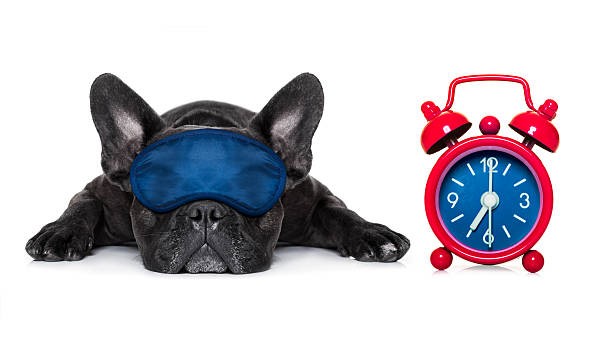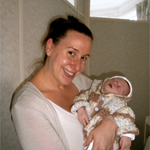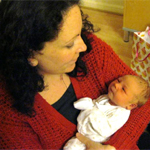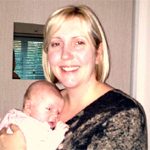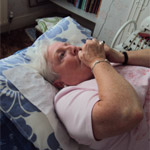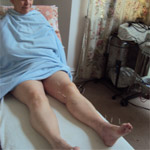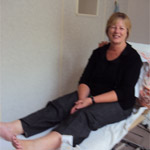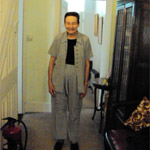Good night, sleep tight!
A good night’s sleep is something we should all be able to take for granted. Sadly, it appears that only a lucky few can lay down their heads and minutes later be climbing Jacob’s ladder. The rest of us – around 60% (Source: Dreams UK Sleep Survey 2016) – feel decidedly short-changed with the amount of shut-eye we get, with three quarters actively worrying about it. Bad luck if you’re female, too – data* shows that you’ll sleep less well and have more long-term difficulties with it than men!
According to the NHS, anyone who regularly has problems sleeping suffers with insomnia. This includes people who are unable to fall or stay asleep, feel tired and/or irritable the next day or have problems concentrating because of tiredness.
The importance of sleep
William Shakespeare had it spot on when describing sleep as “Balm of hurt minds, great nature’s second course, Chief nourisher in life’s feast.”
Four hundred years later, science confirms that sleep plays a significant role in maintaining our physical and mental health. For example, it heals and repairs the heart and blood vessels, controls sugar levels, boosts energy levels and helps maintains a healthy weight and hormonal balance. Thanks to a good night’s sleep we can learn, remember, make decisions, solve problems, organise and store memories of the day before. It also protects against mood swings, depression, anxiety and stress.
How much do we need?
The optimum amount depends on someone’s age, sex, health and other elements, and sleep cycles change as we age. Most adults require 7-9 hours per night, reducing by an hour for the over 65s.
There are four main stages of sleep and for a restful night we must experience all four. The first three, progressively deeper stages are non-rapid eye movement sleep (NREM), followed by rapid eye movement sleep (REM) when we dream. When we awake refreshed, our circadian rhythm (aka sleep/wake cycle) has risen. It then peaks in the evening before dropping very low so we can fall asleep again.
The impact of sleep deprivation
Not getting enough sleep – and many of us don’t, thanks to our pressurized, fast-paced, electronic gadget-laden 24/7 lifestyles – causes stress, poor work/school performance, relationship issues and a host of physical and mental health problems.
Tell-tale physical signs include dark circles under the eyes, a greater chance of developing a serious illness, reduced energy, weight gain and aches and pains arising from poor sleep posture. Emotional indications are feelings of anger, hostility, negativity, of being overwhelmed, as well as poor concentration, difficulty in making decisions, forgetfulness and so on.
Top tips for beating insomnia
Try these tips for achieving your all-important 7-9 hours:
- Your bedroom as a haven. Create a cool, dark and quiet environment in your bedroom. A pleasant temperature of 16-18°C (60-65°F) is perfect for sleeping, although children and the elderly may require more warmth. Cut out noise using ear plugs and banish light with an eye mask or blackout blinds to ensure the release of enough melatonin to prepare you for sleep. Make your bedroom a soothing and clutter-free sanctuary that you use for rest, relaxation and intimacy only.
- Ditch the gadgets. Creating that haven means ousting TVs, mobile phones, laptops and all electronic stimulants from your bedroom – their bleeping and melatonin-suppressing LED displays can severely disrupt circadian rhythms!
- Comfort is key. Maximise the prospect of a restful sleep by ensuring that your bed (frame, mattress and pillow) is the correct size and provides adequate support for your weight and build. For more information visit the National Bed Federation.
- Your wind-down routine. In the hour before bedtime, relax in a warm bath with calming lavender and geranium essential oils (avoid if pregnant) to raise your body temperature and trigger the sleep mechanism. Swap late-night stimulants (caffeine, nicotine, alcohol) for herbal teas and warm milky drinks. Replace late-night browsing media with a relaxing book, soothing music or deep breathing to promote rest.
- Reset your sleep/wake cycle. Try going to bed and get up at the same time every day to establish a healthier sleeping pattern.
How can I help you?
Alternative therapies such as osteopathy and acupuncture can help with sleep difficulties. Osteopathy may eradicate any musculoskeletal problems that prevent sleep and promote all-over wellness while acupuncture can positively affect areas of the brain that are known to reduce sensitivity to pain and stress, promote relaxation and deactivate the ‘analytical’ brain responsible for insomnia and anxiety. It can also enhance the benefits of conventional drugs and help reduce side effects.
My practice offers both treatments, so if you are experiencing problems with your sleep and feel that I can help using either or both therapies, please get in touch.
*Great British Sleep Survey 2012

